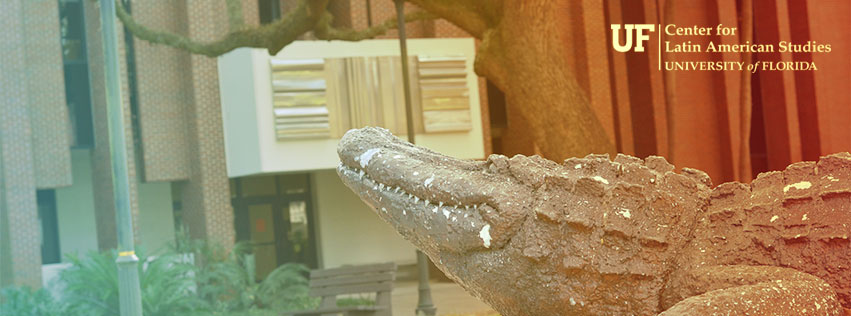 UF Center for Latin American Studies
UF Center for Latin American Studies
There is no single factor responsible for the drought of Lake Poopo. However, other issues that contributed to the drought include intense agricultural production, mining and rising temperatures.

November 19, 2019 | Written by Igor Vianna Sousa, MALAS Student
Dr. Tom Perreault, Geography Professor at the University of Syracuse, delivered a talk regarding the drought of Lake Poopo, Bolivia's second-largest lake. The talk, organized by Dr. Joel Correia (LAS) and sponsored by the Center for Latin American Studies, is part of a series of conversations that fit into the LAS Indigenous Studies Specialization Speaker Series.
Despite being a busy day at the university, and highlighting the importance of the topic, Dr. Perreault delivered his talk to a packed room, including students, teachers, the Center’s new Director, Dr. Carlos de la Torre, and other university and community members.
Dr. Perreault has a lot of experience with the different natural resource issues in Bolivia. He began his work in the region in 2002, primarily with the use of water in Cochabamba and then working with mining and natural gas. The Lake Poopo drought constitutes his latest research. According to Dr. Perreault, the topic appeared to him almost by accident as he originally did not know the lake was undergoing a prolonged drought. However, the drought of Lake Poopo echoed internationally through the media.
“One of the things I was interested in doing was understanding part of the causes and ramifications [of the drought],” said Dr. Perreault, “and partly the ways we think about the discourse of climate changes and the political work within Latin America and elsewhere.” According to Dr. Perreault, the lake drought is directly related to ongoing climate change and exacerbated by other factors. He explained that historically, the lake has a natural process of previous droughts. The loss of Lake Poopo also contributed to the loss of one of the oldest Indigenous peoples of the region, the Urus-Muratos. Historically marginalized and living in the outskirts of Lake Poopo, the main source of subsidence for the Urus-Muratos was fishing.
There is no single factor responsible for the drought of Lake Poopo. However, other issues that contributed to the drought include intense agricultural production, mining and rising temperatures. Nonetheless, according to Dr. Perreault, Oruro Governor Victor Vasquez and then President Evo Morales named climate change as the sole factor responsible for the drought. In doing so, they blamed foreign nations that primarily contribute to climate change for the death of Lake Poopo. Dr. Perreault points out that this is a strategy to safeguard mining policies, which play a major role in the Bolivian economy and exacerbate lake droughts.